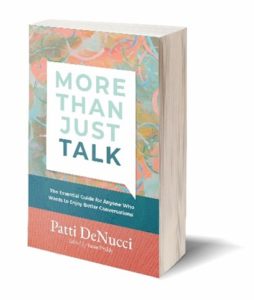“I feel like my flair for sarcasm is one of my gifts,” the woman declared, waving her glass of wine around like a magic wand.
The setting was a cocktail reception at a conference. Clearly, this person had found her way to the bar early.
“Yes, I can see that,” I responded after listening to a stream of sarcastic one-liners pour out of her mouth — and we’d only been talking for a few moments. Her first two quips, I admit, were a little funny and broke the ice. Then, after she offered four or five more, I realized it was time to move along and do some mingling.
I didn’t know it intellectually at the time, but I could definitely feel it. Sarcasm gets old quickly. And interestingly, people who use (or overuse) sarcasm often think they are being witty and ironic. And they are generally quite pleased with themselves, even when what they say stings, offends, or insults. So if you use sarcasm a lot — by habit or by intention — you may want to keep reading.
Here’s your quick primer on how sarcasm, wit, and irony differ. 
Wit is defined as “creative spontaneity, mental sharpness, keen intelligence, and cleverness; an aptitude for using words and ideas in a quick an inventive way.” This may sound like sarcasm, but it’s not. Some examples:
- “If you love someone let them go. If they come back with coffee, it was meant to be.” – Karen Salmansohn
- “People say money is not the key to happiness, but I figure if you have enough money you can have a key made.” – Joan Rivers
- “If you’re going through hell, keep going. – Winston Churchill
- “The best way to appreciate your job is to imagine yourself without one.” – Oscar Wilde
Being witty is truly charming, refreshing, and fun to be around. It breaks the ice and lightens the mood of an exchange. But it’s tricky and takes practice. Furthermore – and this is huge – it has to be relatively harmless. I can fully admit that at times when I’ve tried to be witty, I’ve really only succeeded in putting my foot in my mouth or offending someone. (For that, I’m truly sorry.) To help prevent further social blunders and offenses, I read a fantastic book called The Elements of Wit: Mastering the Art of Being Interesting by Benjamin Errett. It’s a fun and enlightening read. I highly recommend it if you want to dive deeper into the topic.
Irony is also about using language in surprising, unexpected, and often totally contradictory ways. For example, if I stubbed my toe, I might get all ironic and exclaim, “Wow! That felt really good!” Or I may be driving down the highway in a heavy rain and exclaim, “This is so much fun!” Some other examples:
- “Irony is the opposite of wrinkly.”
- “Fight apathy. Or don’t.”
- “I quote others only in order to better express myself.” –
- “We are committed to excellense.”
- “Time wounds all heels.”
In social settings, irony can be hilarious. Or it can be totally confusing, especially to children or to people who aren’t in on the joke. If you want to improve your conversation skills and likability, I suggest you use irony sparingly and carefully.
Sarcasm is defined as “the use of irony to mock or convey contempt.” In other words, it’s irony’s evil twin. It’s mean and cutting. That sure doesn’t sound like a gift to me!
Some examples:
- “Zombies eat brains. You’re safe.”
- “Ugliness can be fixed. Stupidity is forever.”
- “You’re depriving some village of their idiot.”
- “I’m sorry – did the middle of my sentence interrupt the beginning of yours?”
- “Don’t take yourself so seriously. No one else does.”
Ouch! You know it’s sarcasm when it bites and stings or puts someone down. And yet you hear and see it everywhere. It seems to be a staple in a lot in television sitcoms, in stand-up comedy, and in social media. True, using sarcasm might get you a laugh. But typically it’s at someone’s expense. In the end, that could earn you a reputation as a…jerk.
My philosophies about this trio if you want to enjoy better conversations:
- Wit gets a green light.
- Irony gets a yellow light.
- Sarcasm gets a big flashing red light.
What are your thoughts, experiences, and stories about wit, irony, and sarcasm?



As Austin has become more of an international city, folks here may want to keep in mind that all three of these can be challenging to understand for people who are not native English speakers. I don’t remember the phrase I used, but I’ve messed up with this before.
Excellent point, Amy!
I have never liked sarcasm. Then years ago, I heard a therapist say sarcasm is “sideways anger” and is NEVER healthy. Since then, like you, if I find myself with someone who thinks their sarcasm is funny, it’s time to move on.
Great article, Patti!
Sideways anger! What a great term! Yes, it feels like the person who uses sarcasm a lot is just plain angry or insecure, but attempting to be funny – or vice versa. Thank you for your comment, Melinda!